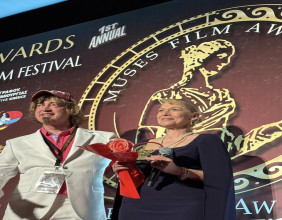Mastercard argues that the cost of accepting cash is more than twice that of card payments, pushing back against calls to ban or limit the fees it charges banks and merchants for using its payment products. The debate comes amid increasing political pressure on Mastercard, Visa, and major banks—whose chief executives are set to appear before a parliamentary inquiry in Canberra this week—over the growing prevalence of debit and credit card surcharges.
Labor MP Jerome Laxale, a member of the committee questioning bank executives, has described the $4 billion in annual card surcharges as a "rort," and the Reserve Bank of Australia is considering a ban on these surcharges.
However, a report commissioned by Mastercard and authored by Boston Consulting Group suggests that there are numerous “hidden costs” for merchants when accepting cash payments, making it twice as expensive as credit card transactions. The report points out that total payment costs include not only fees paid to card networks and issuing banks, but also costs associated with fraud, theft, and back-office operations.
According to the BCG analysis, the overall cost to a merchant of accepting a card payment is 1.8 per cent of the cost of goods, compared to 3.9 per cent for cash. Hidden costs of cash include employee theft, handling errors, manual booking of payments, and the task of taking cash to a bank. These costs are often cross-subsidised by banks, and many small businesses are not fully aware of the expenses involved in managing cash, though Mastercard suggests they should be.
The report also identifies buy now, pay later (BNPL) services as the most expensive payment method, with an average cost of 5.3 per cent of the transaction value. However, BNPL providers like Afterpay and Zip do not allow retailers to pass these costs on to customers.
Richard Wormald, Mastercard's division president for Australasia, argued that instead of squeezing direct costs lower, policymakers should target indirect costs to reduce the overall expenses. For instance, switching from standalone payment terminals, where staff manually enter transaction amounts, to integrated terminals that automatically register payments could reduce overall payment costs by 30 per cent, more than the total direct costs.
Wormald noted, "Rather than focus on direct costs like we do today, the way to think of costs of the payment system is to look at the end-to-end costs for a merchant, how to bring those down, and how we drive productivity across the whole system." He added that there is a need to educate on the fact that cash is more expensive than cards and to address digital exclusion in areas with low internet connectivity.
Acknowledging that small businesses often face higher fees than average, Mastercard has reduced direct fees for small businesses and has proposed to the Reserve Bank of Australia that banks pass on these reductions to customers, as they have done in Canada.
The BCG study further breaks down the direct costs for digital payments, which total 0.61 per cent of the transaction amount, representing one-third of the total cost. Direct fees are divided among the card schemes, the bank issuing the card, and the bank providing payment terminals to the retailer. According to the study, card schemes like Visa, Mastercard, and Eftpos receive an average of 0.13 per cent of the 0.61 per cent direct cost. The interchange fee—charged by the consumer’s bank to the merchant’s bank—is 0.18 per cent, while 0.30 per cent is paid to the bank servicing the merchant.




